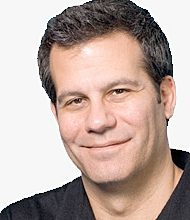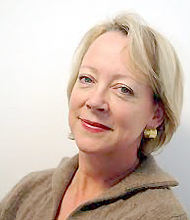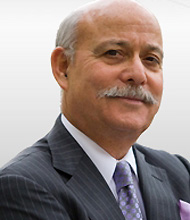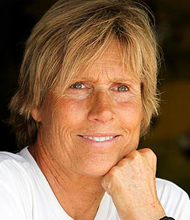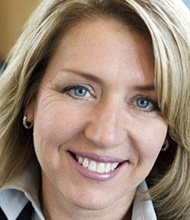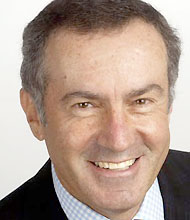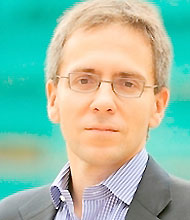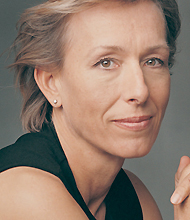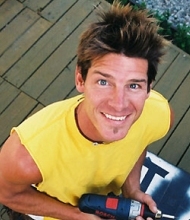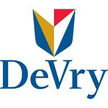| TRAVELS FROM |
|
SPEAKING FEE RANGE ** Please note that while this speaker’s specific speaking fee falls within the range posted above (for Continental U.S. based events), fees are subject to change. For current fee information or international event fees (which are generally 50-75% more than U.S based event fees), please contact us. $30,000 to $50,000 |
|
BOOK RICHARD FLORIDA speakers@coreagency.com |
| TRAVELS FROM |
|
SPEAKING FEE RANGE* $30,000 to $50,000 |
|
Book Richard Florida speakers@coreagency.com |
- Founder of the Creative Class Group, dedicated to transforming the world’s emerging “creative class” into an enduring “creative society.”
- Senior editor for The Atlantic, and co-founder and editor-at-large of the magazine’s innovative CityLab.
- Author of the bestselling The Rise of the Creative Class.
- Florida’s Twitter feed is ranked among the 140 most influential on the planet.
Richard Florida believes we may be on the cusp of a dramatic new social compact that shapes our presumptions about how we live and work – the transformation of an emerging “creative class” into an enduring “creative society.” As one of the world’s leading urbanists, Florida and his Creative Class Group work with governments, businesses, and other organizations around the world to bring this new social compact into being.
Florida is the director of the Martin Prosperity Institute at the University of Toronto’s Rotman School of Management. He also serves as a global research professor at New York University and a visiting fellow at Florida International University. His commitment to putting research into action led Florida to found the Creative Class Group; he also serves as a senior editor for The Atlantic, where he also co-founded and serves as editor-at-large for CityLab. An award-winning author, Florida’s books include The Rise of the Creative Class.
MIT named Florida the most influential thought leader in the world in 2013. Time magazine recently recognized his Twitter feed as one of the 140 most influential on the planet. Holder of a Ph.D. from Columbia University, Florida has also taught at Carnegie Mellon, Ohio State, Harvard, and MIT, and served as a visiting fellow at the Brookings Institution.
 If we want to grow our businesses, economy and communities, we have to tap into the creativity of everyone... If we want to grow our businesses, economy and communities, we have to tap into the creativity of everyone... | |
| |
 | What do you want people to learn/take away from your presentations? |
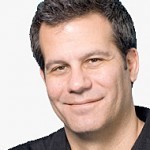 | Simple. Every human being is creative. If we want to grow our businesses, economy and communities, we have to tap into the creativity of everyone – not just the Creative Class |
 | What kind of special prep work do you do prior to an event? How do you prepare for your speaking engagements? |
 | We schedule time with the client to understand their needs, goals and expectations for the presentation. Then, my team and I tailor my message to meet those expectations, with the hopes of providing inspiration for the audience but also practical insights to the challenges that they face. |
 | Have you had any particularly memorable speaking engagements / unusual situations arise while on the road? |
 | Sure, I have been honored to speak along side President Bill Clinton, President Barack Obama, SAS Founder and CEO Jim Goodnight and Bill Gates. My most memorable road experience was taking a helicopter ride to a speaking engagement in Siberia. |
 | What types of audiences would most benefit from your message? |
 | Businesses, consumer brands, cities, non-profit organizations, foundations and governmental bodies |
 | Which of your keynote speaking topics are your favorites? |
 | I enjoy speaking about creativity, cities, economic development, urbanism, consumer profiles and targeting and real estate trends. |
| I believe the ideas that my team and I are putting forth are helping us build more creative, inclusive businesses and communities. | |
| |
 | What inspired you to start doing speaking engagements? |
 | I love having the opportunity to shape the fields of business, economics, urbanism and economic development. I believe the ideas that my team and I are putting forth are helping us build more creative, inclusive businesses and communities. Speaking affords me a platform to share those ideas. |
 | How do you keep your audience engaged and actively listening during your keynotes? Do you use case studies, personal stories and/or in your speeches? |
 | I do not speak from notes or presentation slides; this helps me to build a rapport and relationship with my audience. Likewise, I use personal stories, case studies and the most recent, cutting-edge research to support my key messages. |
 | What are some of the successes you've helped clients achieve? |
 | For brands and businesses, from IBM and Google to Converse and BMW, I’ve offered insights and strategies from how to target the Creative Class consumer to managing today’s Creative Class worker. For cities, real estate professionals, non-profits and governmental entities all over the world – literally all over the globe from Vancouver and Hong Kong to Sydney, Austria and Warsaw Poland – I have outlined the changing trends in our economy, communities and built environments. |
“It was fantastic to listen to Richard…the performance not only fulfilled our expectations but opened a new stage of inspirations for our Ministry to work on the development of regions.”
Patrycja Artymowska, Office of President, Poland Ministry of Regional Development
“Your substantive insights on ‘Creative Cities and Urban Development Reform’ contributed greatly to the deliberations at the Conference.”
Toshihiro Tanaka, Country Director, United Nations Development Program
“An urban-development expert…His ideas about revitalizing cities by attracting artists and high-tech workers have influenced a generation of urban planners.”
Andrea Sachs, TIME
“…he’s changed the framework for discussing social and economic inequality.”
Herbert Muschamp, New York Times, Year in Review
“……Florida’s work is challenging many of the verities of the field.”
Salon.com
“Never before have I seen anyone capture so succinctly the values and desires of the new ‘creative class’ and the essence of human capital and the creative ethos.”
John Seely Brown, Former Director, Xerox Palo Alto Research Center (PARC) and co-author of The Social Life of Information
“The creative-capital theory turned out – at least after preliminary testing – to provide the best explanation for Austin’s high-tech transformation.”
New York Times
“Florida’s research and experiences over the past decade have given him the foundation on which to build a new view of business reality…”
Herbert Muschamp, InformationWeek
Richard Florida is one of the world’s leading experts on the fundamental transformations currently underway in our economy and our daily lives. An educator with decades of research experience in the field of urbanism, Florida shares his compelling insights with clarity and energy, leaving audiences inspired to grapple with the changes their organizations face.
Much of Florida’s research addresses questions of how to transform the emerging “creative class” into an enduring “creative society.” His presentations provide readily applicable advice on how to transform creativity into innovation and move beyond the mass production models of previous generations.
Place is central to Florida’s vision of the future. His recommendations for revitalizing urban areas and increasing opportunity across the socioeconomic spectrum combine practicality with an innovator’s vision for what the world’s cities might become.
Combining in-depth analysis, cutting-edge trends, compelling personal stories and a touch of humor, it is no wonder Richard Florida is one of the world’s most sought after speakers, alongside luminaries such as Bill Clinton, Bill Gates and Supreme Court Justice, Sandra Day O’Connor. As a leading public intellectual, Esquire Magazine recently named him one of their Best and Brightest. Richard has also been appointed to the Business Innovation Factory’s Research Advisory Council and recently named European Ambassador for Creativity and Innovation.
Suggested Speaking Topics:
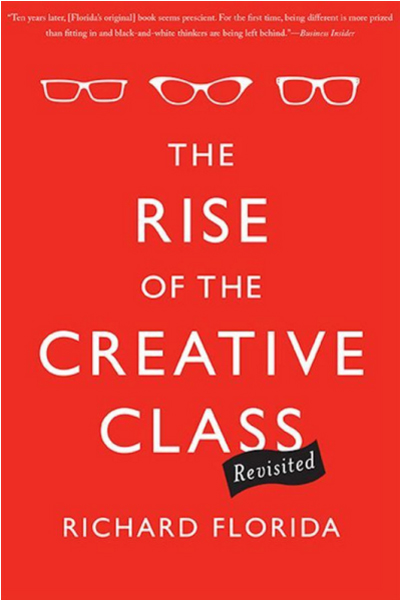
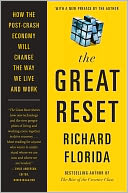 The Great Reset: How the Post-Crash Economy Will Change the Way We Live and Work
The Great Reset: How the Post-Crash Economy Will Change the Way We Live and Work
We′ve weathered tough times before. History teaches us that periods of "creative destruction," like the Great Depression of the 1930s, also present opportunities to remake our economy and society and to generate whole new eras of economic growth and prosperity.
In The Great Reset, bestselling author and economic development expert Richard Florida provides an engaging and sweeping examination of these previous economic epochs, or "resets," while looking toward the future to identify the patterns that will drive the next Great Reset and transform virtually every aspect of our lives.
He distills the deep forces that alter physical and social landscapes—how and where we live, how we work, how we invest in individuals and infrastructure, how we shape our cities and regions—and shows the ways in which these forces, when combined, will spur a fresh era of growth and prosperity, define a new geography of progress, and create surprising opportunities for all of us.
Order Here
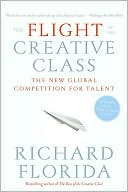 The Flight of the Creative Class: The New Global Competition for Talent
The Flight of the Creative Class: The New Global Competition for Talent
The most valued workers today are what the economist Richard Florida calls the Creative Class, skilled individuals ranging from money managers to make–up artists, software programmers to steady–cam operators who are in constant demand around the world.
Florida′s bestselling The Rise of the Creative Class identified these workers as the source of economic revitalization in American cities. In that book, he shows that investment in technology and a civic culture of tolerance (most–often marked by the presence of a large gay community) are the key ingredients to attracting and maintaining a local creative class.
In The Flight of the Creative Class, Florida expands his research to cover the global competition to attract the Creative Class. The United States was, up until 2002, the unparalleled leader in creative capital. But several key events––the Bush administrations emphasis on smokestack industries, heightened security concerns after 9/11 and the growing cultural divide between conservatives and liberals––have put the US at a substantial dis–advantage.
Order Here
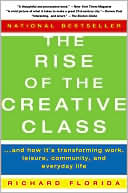 The Rise of the Creative Class: And How It′s Transforming Work, Leisure, Community, and Everyday Life
The Rise of the Creative Class: And How It′s Transforming Work, Leisure, Community, and Everyday Life
The Washington Monthly 2002 Annual Political Book Award Winner
The Rise of the Creative Class gives us a provocative new way to think about why we live as we do today-and where we might be headed. Weaving storytelling with masses of new and updated research, Richard Florida traces the fundamental theme that runs through a host of seemingly unrelated changes in American society: the growing role of creativity in our economy.
Just as William Whyte′s 1956 classic The Organization Man showed how the organizational ethos of that age permeated every aspect of life, Florida describes a society in which the creative ethos is increasingly dominant. Millions of us are beginning to work and live much as creative types like artists and scientists always have-with the result that our values and tastes, our personal relationships, our choices of where to live, and even our sense and use of time are changing. Leading the shift are the nearly 38 million Americans in many diverse fields who create for a living-the Creative Class.
The Rise of the Creative Class chronicles the ongoing sea of change in people′s choices and attitudes, and shows not only what′s happening but also how it stems from a fundamental economic change. The Creative Class now comprises more than thirty percent of the entire workforce. Their choices have already had a huge economic impact. In the future they will determine how the workplace is organized, what companies will prosper or go bankrupt, and even which cities will thrive or wither.
Order Here

In this interview, Dr. Richard Florida discusses:

 VIDEO
VIDEO TESTIMONIALS
TESTIMONIALS PROGRAMS
PROGRAMS SPEAKING
SPEAKING BOOKS
BOOKS INTERVIEW
INTERVIEW